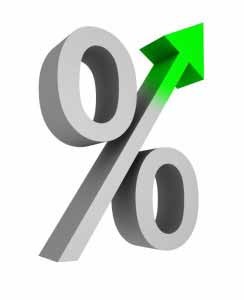Westpac Raises Mortgage Rates
| First in Finance > News > Westpac Raises Mortgage Rates
 On October 14, 2015 the Sydney Morning Herald reported that Westpac was raising interest rates on variable interest owner occupied home loans (Westpac rate rise ushers in end of the property boom, Elizabeth Knight). This move has caused speculation in the industry that other banks may follow suit. The raise in interest rate of .2% was attributed to the cost of doing business of raising the amount of capital that is required by the Australian Prudential Regulation Authority (APRA). Westpac is in effect passing this cost on to their customers. Most industry observers expect the other big 3 banks (Commonwealth Bank of Australia, National Australia Bank and ANZ) to use this move as an excuse to raise their own rates.
On October 14, 2015 the Sydney Morning Herald reported that Westpac was raising interest rates on variable interest owner occupied home loans (Westpac rate rise ushers in end of the property boom, Elizabeth Knight). This move has caused speculation in the industry that other banks may follow suit. The raise in interest rate of .2% was attributed to the cost of doing business of raising the amount of capital that is required by the Australian Prudential Regulation Authority (APRA). Westpac is in effect passing this cost on to their customers. Most industry observers expect the other big 3 banks (Commonwealth Bank of Australia, National Australia Bank and ANZ) to use this move as an excuse to raise their own rates.
Westpac’s rate hike will have the effect of putting downward pressure on home sales and prices since there will be less money to borrow. There has recently already been a housing price correction, so this worries some observers. The effect will be felt first in New South Wales where Westpac is largest.
Big Banks starting to hit back pockets hard as they are positioning themselves to meet APRA requirements.
APRA has increased the requirement for the amount of capital banks must hold against their home lending products. This requirement is meant to stabilize the banking industry and prevent any financial disasters. One effect however is that it increases the banks’ cost of doing business. While Westpac has ventured out first and raised their interest rates to cover this cost, it remains to be seen exactly what the other 3 big banks will do.
The other banks may wait until the Reserve Bank of Australia (RBA) announces whether it will lower interest rates. If it does lower interest rates, the other banks may raise their mortgage rates, but probably not by as much as Westpac. The RBA though, in turn, might wait to see if the other banks raise their interest rates. If the other banks raise their interest rates first, it might slow down the growth of the housing market, which was of concern to the RBA in its consideration to lower interest rates. So if the banks raising their interest rates does in fact slow down the housing market, the RBA might be more willing to go ahead with an interest rate cut.
Now is a good time to re-visit and reassess your existing borrowing arrangements
Several banks, including ME, Commonwealth Bank’s Bankwest, Newcastle Permanent, and Heritage Bank have lowered fixed rate mortgage products.
Fixed rate mortgages are about 1% lower than variable rate mortgages. One disadvantage however of fixed rate mortgages are penalties for early payoff. Also, not all fixed rate mortgages have offset accounts, which can serve to cut the effective interest rate. However, this move by Westpac is likely to make more consumers fix their mortgages, especially since the RBA might lower rates being more comfortable now that doing so will not create a housing bubble.
Fixed rate options are providing some good options to hedge against rate movements
Interest rates for fixed two and three-year home loans are near record lows. RateCity, a comparison website, has seen a 25% increase in comparison requests in the days since Westpac’s announcement. The current demand for fixed rate loans, however, is low. Customers might be unlikely to switch banks since the other banks are likely to follow up with a rate hike themselves, not to mention the inertia of having to deal with switching banks. Plus there is the prospect of the RBA cutting rates, which would mitigate the banks rate hike to some degree.
The majors are all positioning themselves to increase rates against the backdrop of the APRA requirements and together lending regimes are already in place.
From a public relations standpoint, Westpac’s decision to raise rates did not go well, but it wasn’t expected to. Indeed, Federal Treasurer Scott Morrison criticised the bank for doing so. However, financially, the move has put Westpac ahead of the other banks in that they have passed on the cost of maintaining higher capital reserves to their customers, and the stock price subsequently increased. Stockholders will also continue to receive steady dividends as a result of the move.
If the other banks raised their mortgage rate the same .2% points, which is far from certain they’ll do, each bank would raise its profit between 3 and 5 percent, said market analyst Jarrod Martin of Credit Suisse. That would equate to $234 million for ANZ, $435 million for CBA, and $277 for NAB–a combined figure of $1.2 billion.
First In Finance can review your Mortgage with you and find the best deal out there. Contact us today.
